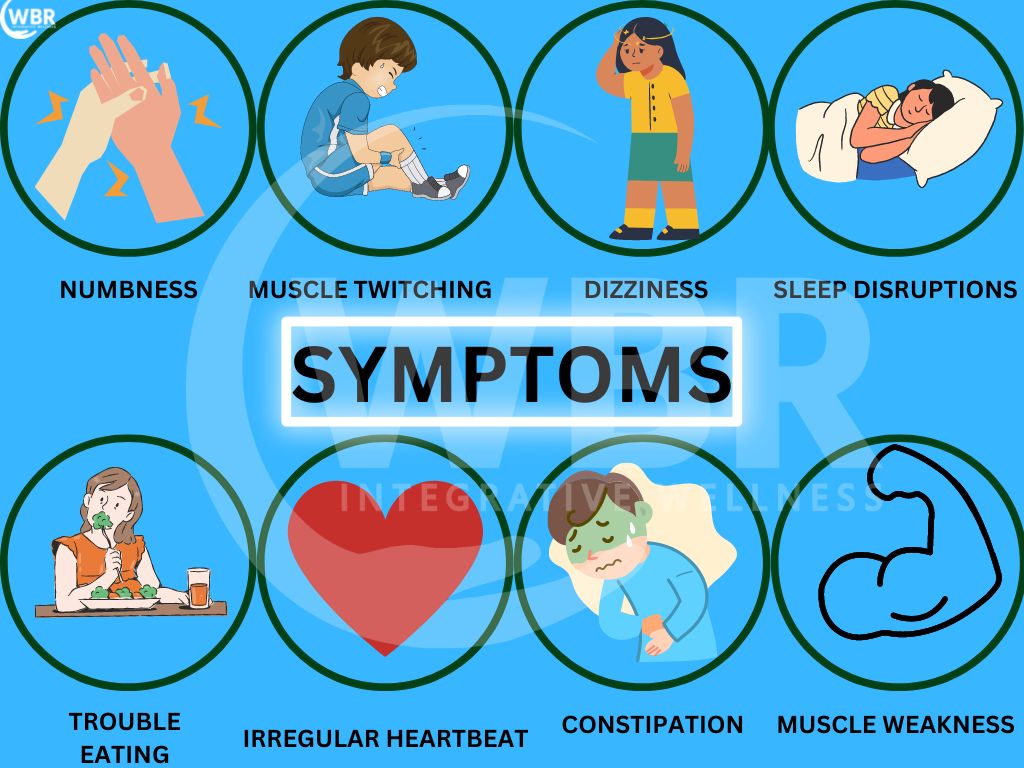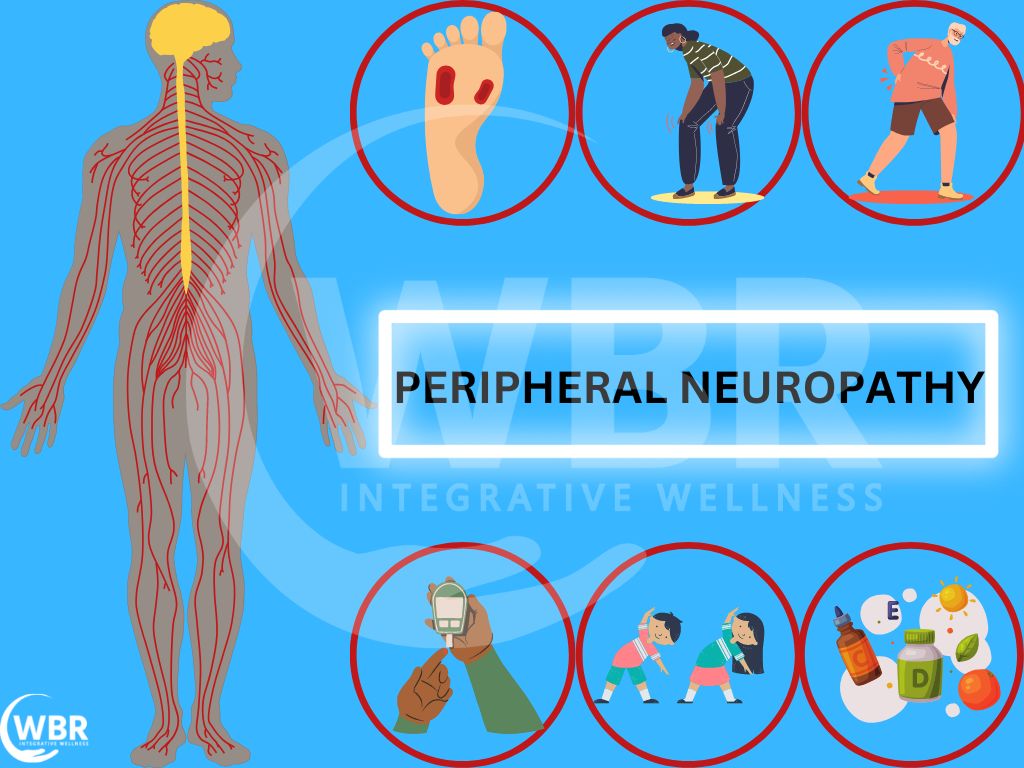How to Prevent and Control Peripheral Neuropathy Naturally
Peripheral neuropathy is the damage caused to the nerves located outside the brain and spinal cord. It often causes weakness, numbness, and pain, mainly in the hands and feet. However, it can affect other areas and body functions, including digestion, circulation, and urination.
What is Peripheral Nervous System?
The peripheral nervous system sends data from the central nervous system (brain and spinal cord) to the rest of the body. Moreover, these nerves also send sensory information to the brain and spinal cord.
Types
Peripheral neuropathy has hundred different types. Moreover, every type has its own set of symptoms. Understanding them becomes better when these types are further divided into the following categories.
Motor Neuropathy: In this kind of peripheral neuropathy, nerve-controlling muscle and moment of the body get damaged. Examples are nerves involved in moving hands and arms or talking.
Sensory Neuropathy: Here the sensory nerves controlling feelings like pain or touch get damaged. Sensory neuropathy shows its effect on this nerve group.
Autonomic Nerve Neuropathy: The autonomic nerves control the functions that are not conscious, like Heartbeat and breathing. Damage to these nerves can become severe.
Combination Neuropathies: Some people experience a combination of 2 8 3 of these types. Moreover, they can also experience other types of neuropathies. Combinations are given mixed names, such as sensory-motor neuropathy.
Peripheral Neuropathy Symptoms
Most symptoms depend on the type and the body part affected. However, common symptoms range from tingling or numbness in a body part to more severe effects like burning pain or paralysis. Here is a list of common symptoms.
- Cramps
- Muscle weakness
- Loss of muscle and bone
- Muscle twitching
- Changes in nails, hair, or skin
- Numbness
- Loss of feeling in the body parts
- Loss of balance
- Emotional disturbances
- Disruptions in sleep
- Loss of pain
- Inability to properly sweat
- Loss of bladder control
- Dizziness
- Diarrhoea or constipation
- Trouble eating or swallowing
- Difficulty in breathing or irregular Heartbeat

Causes
Peripheral neuropathy may result from certain infections, traumatic injuries, metabolic problems, toxic exposure, and genetics. However, blood sugar is one of the most common causes. An acquired peripheral neuropathy is often idiopathic, and we do not know why it is happening. We can connect this condition to one or more causes.
Generalized Diseases: Diabetes is one of the common factors causing nerve damage. It leads to pain, numbness, and in the extremities, loss of sensation. Moreover, the following steps are suggested to prevent or delay nerve damage in people with diabetes.
- Regularly check your blood sugar levels to check whether diabetes is on track.
- Check feet for any injury, infection, or hotspots
- Keep monitoring for any symptoms of neuropathy
- Always protect your feet with special shoes
- Take care of your feet when washing and exercising.
Studies show that 60 to 70% of diabetic people have some nerve damage. Here is a list of other chronic diseases that may cause nerve damage, including
- Autoimmune diseases
- Kidney or liver disorders
- Vascular and blood disorders
Injury: Physical trauma is one of the most important causes of nerve damage resulting from an accident, fall, or fracture. Inactivity or holding for too long in one position can also cause neuropathy. The median nerve in the wrist supplies movements and feelings to the hand. Damage or pressure to this nerve causes carpal tunnel syndrome, a common type of peripheral neuropathy.
Alcohol and Toxins: Alcohol has severe toxic effects on nerve tissues. People who use alcohol more are at a greater risk of peripheral neuropathy. Some toxic Chemicals like solvents, insecticides, and glue can also cause this condition. Moreover, exposure to heavy metals such as lead and mercury also leads to this condition.
Infections and Autoimmune Disorders: Some types of bacteria and viruses attack nerve tissue directly. Viruses like herpes simplex, Epstein Barr virus, and varicella zoster virus damage the sensory nerves resulting in intense shooting pain episodes. Bacterial infections like Lyme disease cause nerve damage when not treated properly. Additionally, people who have AIDS may also get peripheral neuropathy. In cases of autoimmune diseases like rheumatoid arthritis and lupus peripheral nervous system gets affected differently. Damage and chronic inflammation of the tissues throughout the body and pressure caused by inflammation may lead to nerve pain in the extremities.
Medications: Some kinds of medication can also lead to nerve damage, including
- Bacterial infections fighting drugs
- Blood pressure medication
- Cancer medication
- Anticonvulsants used to treat seizures
- Statins class of drugs used to prevent cardiovascular disease and lower cholesterol that can cause neuropathy.
How to Prevent and Control Peripheral Neuropathy
Some natural ways help to ease the symptoms. In most cases, natural interventions help to prevent further damage. Here is a list of such natural treatments.
Dietary Changes
Diabetes is the primary cause of peripheral neuropathy. Changing diet can help lower blood sugars, ease the symptoms, and prevent them. You must consider a diet rich in fiber and has fewer simple carbohydrates. Avoiding some types of food will be helpful such as
- White bread products such as pasta
- Sweets
- Processed snacks
Other dietary changes that will help people whether or not they have diabetes are
- Including antioxidant-rich food such as walnuts and Blueberry flax seeds which may help to combat inflammation.
- Including high fiber food and complex carbohydrates as the body slowly absorbs them like some vegetables, fruit, and nuts
- Limiting sodium intake to 2300 mg per day
- Restrict intake of saturated and trans fats
- Eliminating or reducing alcohol intake
Supplements
Many kinds of supplements support nerve health and help to ease the symptoms. They are
B Complex Vitamins: B12 deficiency can damage the nerve’s protective coating, whereas B9 deficiency may also impair nerve health. B1, B6, and B12 supplements can help to ease neuropathic pain in people with deficiencies.
Vitamin E: Vitamin E is a powerful antioxidant. Food rich in vitamin E helps to reduce inflammation and nerve damage. Vitamin E can also help to manage some symptoms, including tingling and burning.
Acetyl L Carnitine: Research shows that ALC can help with neuropathy that results from chemotherapy.
Alpha Lipoic Acid: It helps to reduce burning pain in people who have diabetes. But there is no accurate information on whether it is safe or effective for people with chemotherapy-related neuropathy.
Omega 3 Fatty Acids: Omega 3 fatty acids not only help to reduce inflammation but also support a healthy nervous system. So it can potentially prevent neuropathy or reduced symptoms.
N Acetylcysteine: It is an antioxidant and helps to reduce pain sensations. Studies show that it blocks enzymes which leads to neuropathic pain.
Calcium and Magnesium: Taken together, they help reduce muscle cramps that exacerbate neuropathy discomfort. However, high doses may lead to diarrhoea.
Glutamine: Glutamine is a non-essential amino acid. It helps to protect the nervous system. Further research is required to understand its effect fully.
Conclusion
Peripheral neuropathy is a condition that occurs when there is damage to the peripheral nerves, which are the nerves that carry information to and from the brain and spinal cord to the rest of the body. Symptoms of peripheral neuropathy can include numbness, tingling, weakness, and pain in the affected area. It is usually caused by a disease or condition that damages the nerves, such as diabetes, HIV/AIDS, alcohol abuse, or exposure to certain toxins. There are many natural ways that help control and prevent peripheral neuropathy:








